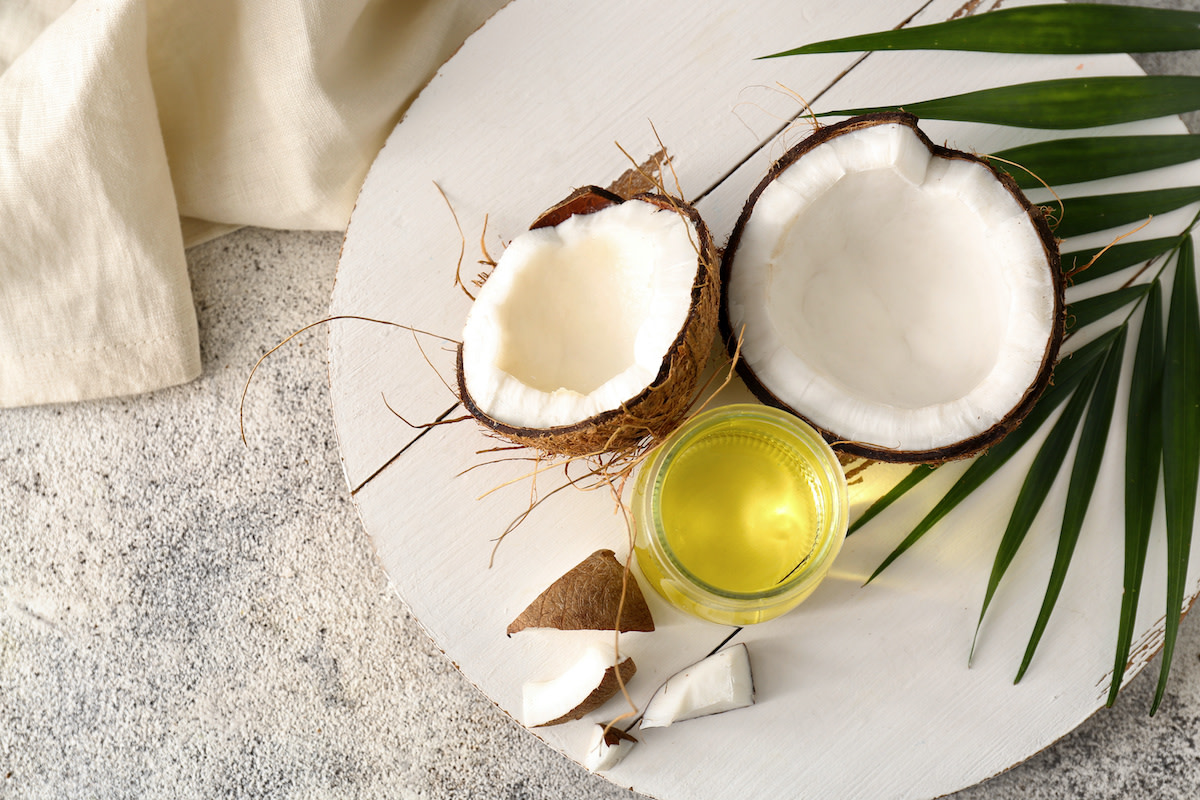Does Coconut Oil Go Bad? How to Store Coconut Oil
Written by MasterClass
Last updated: Dec 16, 2021 • 3 min read
Coconut oil doesn’t just have a wide variety of uses; it also has an extra-long shelf life. You may be wondering if coconut oil goes bad and how to store it to ensure the longest shelf life. Follow this guide to learn how to store coconut oil.
Learn From the Best
What Is Coconut Oil?
Coconut oil comes from the fruit of the tropical coconut palm tree (Cocos nucifera), which yields meat that is about thirty-five percent oil by weight. Oil made from coconuts is very high in saturated fat (about eight-six percent), making it very stable, resisting oxidation and rancidity. It has a melting point of seventy-eight degrees Fahrenheit and a smoking point of around 440 degrees Fahrenheit.
Coconut oil solidifies at room temperature, allowing home cooks to use it to make chocolate truffles and other no-bake desserts. Coconut oil also has many skincare uses (as a moisturizer) and health benefits, making it a useful pantry staple.
Does Coconut Oil Go Bad?
Coconut oil has a long shelf life, but it is perishable and will go bad. You can prolong the shelf life of coconut oil by storing it properly in an airtight container in a cool place. Only use coconut oil if you're sure it hasn't become rancid.
Discard expired coconut oil immediately. Consuming or using spoiled coconut oil can increase the number of free radicals in the body, linked to inflammatory and cardiovascular diseases.
How Can I Tell If My Coconut Oil Has Gone Bad?
Look for these signs of spoilage that can indicate whether your coconut oil has gone bad:
- Discoloration: Coconut oil should be a pale-white color. If the oil starts to turn yellow or green or has any dark oil spots or signs of mold, it has turned rancid.
- Expiration date: Check the expiration date on the coconut oil packaging. Per typical food safety protocol, throw away any jar of coconut oil that has passed its expiration.
- Flavor: Coconut oil should have a natural coconut flavor. If the flavor starts to taste sour or bitter, the oil has gone bad.
- Smell: Coconut oil has a naturally pleasant coconutty or neutral scent. Rancid coconut oil will have an overly sour or bitter smell.
- Texture: Coconut oil will either be in liquid form or solid form, depending on whether you store it at room temperature or in the fridge. If the oil starts to look chunky, with an inconsistent texture, like curdled cream, it has likely turned bad.
How to Store Coconut Oil
Use clean utensils when handling your coconut oil because any food left in the container will act as contaminants and spoil the oil. Here’s how to store your coconut oil to prolong its shelf life and keep it from turning rancid:
- In an airtight container: You can store your coconut oil in whatever storage container you bought it in. Reseal the container securely when you’re done using it to keep out air and outside contaminants. Exposure to air is the main cause of spoilage.
- In the refrigerator: It isn't necessary to keep coconut oil in the fridge, but refrigeration can slow down the processes that encourage spoilage, meaning it will keep for longer. Refrigerated coconut oil will turn hard, making it difficult to use for skincare or salad dressings. However, you can easily use hardened coconut oil for baking.
- In a dark place: If storing coconut oil at room temperature, keep it in a dark place such as a cupboard or pantry. Direct sunlight can shorten its shelf life.
How Long Does Coconut Oil Last?
Coconut oil has a long shelf life, similar to other cooking oils, such as olive oil or vegetable oil. The general rule is that coconut oil will last for up to two years if properly stored. However, the shelf life depends on what type of coconut oil you have on hand.
Virgin or extra-virgin coconut oil, also called unrefined coconut oil, is made from fresh coconut meat, or copra. It has a shelf life of up to five years. Producers make refined coconut oil using dried coconut flesh: It will keep for up to eighteen months.
Want to Learn More About Cooking?
Become a better chef with the MasterClass Annual Membership. Gain access to exclusive video lessons taught by the world’s best, including Alice Waters, Gabriela Cámara, Niki Nakayama, Chef Thomas Keller, Gordon Ramsay, Yotam Ottolenghi, Dominique Ansel, and more.
